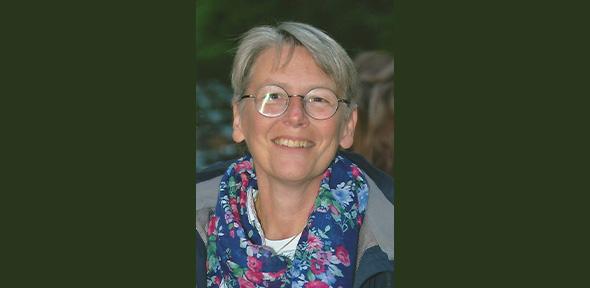
Submitted by Richard Arlett on Tue, 12/11/2024 - 09:23
Henriëtte Hendriks is Professor of Language Acquisition and Cognition in the Faculty of Modern & Medieval Languages & Linguistics at the University of Cambridge.
Her research focuses on the relationship between language and cognition, and she is particularly interested on how children acquire their first language compared to how adults learn a second language, and what this tells us about language learning.
Henriëtte is also the PI and Deputy Director of the Centre for Lifelong Learning and Individualised Cognition (CLIC) in Singapore, where she works as part of a large interdisciplinary team investigating ways to enhance learning and promote cognitive flexibility. Her research at CLIC concerns the relationship between cognitive flexibility and language acquisition and multilingualism.
Henriëtte’s other research questions include language typology and ways in which languages differ in their expression of concepts (person, time, space, causality), and how this impacts on first and second language acquisition.
She was a founding Director of Cambridge Language Sciences, together with William Marslen-Wilson.
What is the main aim of your research (in this context) and what key questions or issues does it address?
The main aim of my research in this context is to understand the influence of both cognitive factors and language-specific differences in determining language acquisition.
What does your research involve you actually doing on a daily basis, and where do you typically carry out your work?
Once I have decided on a research question, and in the context of my work on language acquisition, I tend to collect data in a range of different environments relevant to the learner, usually where people gather and socialise. This could be a classroom in a primary school, communal or leisure spaces, or even a pub. Typically, I analyse the data and write publications on the research in my university office.
What outcomes or contributions do you hope your research will lead to in the future?
My research aims to deepen our understanding of how language acquisition works both for children and for adults learning a second or additional language. Children learn their first language naturally, whereas adults often find acquiring a new language quite challenging. I’m interested in understanding why this is.
For my current research in Singapore, through the CLIC project, I’m part of a multi-disciplinary team exploring learning more broadly – specifically, which factors enhance learning and create the best conditions for improving lifelong learning and learning outcomes. We think that enhancing cognitive flexibility might be key to lifelong learning and I am looking into the relationship between multilingualism and cognitive flexibility.
What aspect of your work is most exciting to you right now?
The results from our research in Singapore are very exciting. The scope of the project is much broader than research within a single discipline and encompasses the domains of linguistics, psychology, education, neuroscience and psychiatry amongst others. Our dataset is unique, integrating diverse perspectives within a single project. Being part of a large interdisciplinary team has been a rewarding learning experience for me on a personal level.
How does this year’s symposium theme, “How can learning a second language be made effortless?”, relate to your research?
This theme is very relevant to my own research. Greater understanding of the processes underlying a child’s L1 acquisition and adults' L2 acquisition is important if we want to reduce the barriers faced by adult language learners and make language learning easier for them in the future.
Is there anything else you’d like to add that you feel is relevant?
Second language acquisition should never be portrayed as “easy” in my opinion! Part of the challenge is the common misconception that a language can be learned quickly. I think it’s very important to manage expectations and be realistic about the time and effort involved.
